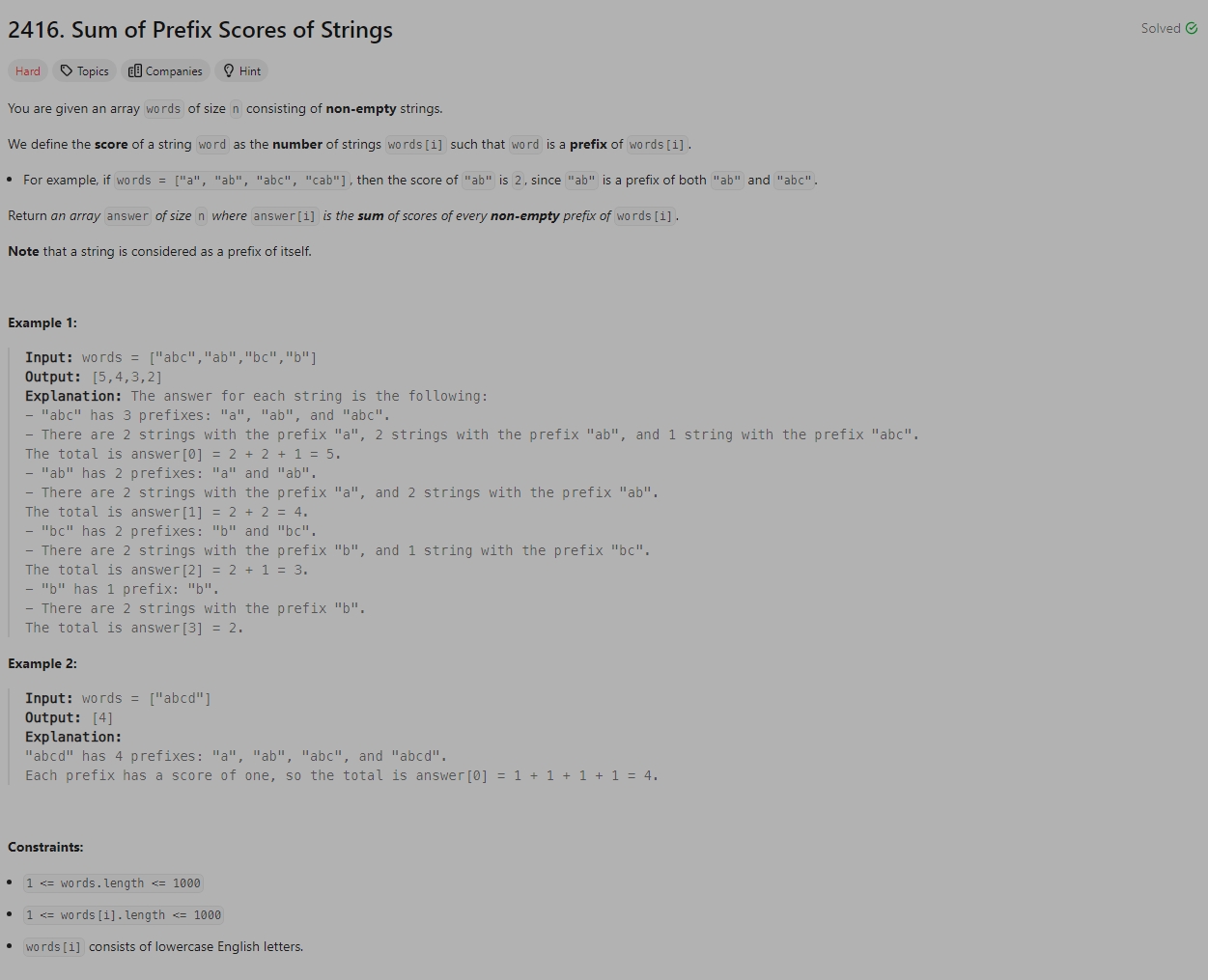Problem of The Day: Sum of Prefix Scores of Strings
Problem Statement

Intuition
The problem requires us to compute a score for each word based on the frequencies of its prefixes in the list of words. My first thought was to use a trie (prefix tree) structure, as it allows us to efficiently store and search for prefixes.
Approach
- Building the Trie:
- For each word in the list, add it to the trie while keeping track of the count of each prefix.
- As we add each character of a word to the trie, we increment the count for that prefix. This count will represent how many times that particular prefix appears in the list of words.
-
Calculating Scores:
- For each word, traverse through the trie again, summing up the counts of each character (prefix) encountered.
- This sum will be the score for that word, as it represents the cumulative frequency of all its prefixes.
- Result Compilation:
- Store the calculated scores for each word in a result list and return it.
Complexity
-
Time complexity:
\(O(m \cdot n)\), where \(n\) is the number of words and \(m\) is the average length of the words. This accounts for building the trie and calculating the scores. -
Space complexity:
\(O(m \cdot n)\), as we need to store each word in the trie and additional information (count) for each node.
Code
class Solution:
def sumPrefixScores(self, words: List[str]) -> List[int]:
trie = {}
for word in words:
curr = trie
for c in word:
if c not in curr:
curr[c] = {'count': 0}
curr[c]['count'] += 1
curr = curr[c]
res = []
for word in words:
curr = trie
temp = 0
for c in word:
if c in curr:
temp += curr[c]['count']
curr = curr[c]
res.append(temp)
return res
Editorial
Approach: Tries
class trie_node:
def __init__(self):
self.next = [None] * 26
self.cnt = 0
class Solution:
def __init__(self):
# Initialize the root node of the trie.
self.root = trie_node()
# Insert function for the word.
def insert(self, word):
node = self.root
for c in word:
# If new prefix, create a new trie node.
if node.next[ord(c) - ord("a")] is None:
node.next[ord(c) - ord("a")] = trie_node()
# Increment the count of the current prefix.
node.next[ord(c) - ord("a")].cnt += 1
node = node.next[ord(c) - ord("a")]
# Calculate the prefix count using this function.
def count(self, s):
node = self.root
ans = 0
# The ans would store the total sum of counts.
for c in s:
ans += node.next[ord(c) - ord("a")].cnt
node = node.next[ord(c) - ord("a")]
return ans
def sumPrefixScores(self, words):
N = len(words)
# Insert words in trie.
for i in range(N):
self.insert(words[i])
scores = [0] * N
for i in range(N):
# Get the count of all prefixes of given string.
scores[i] = self.count(words[i])
return scores
- time: O(N*M)
- space: O(N*M)